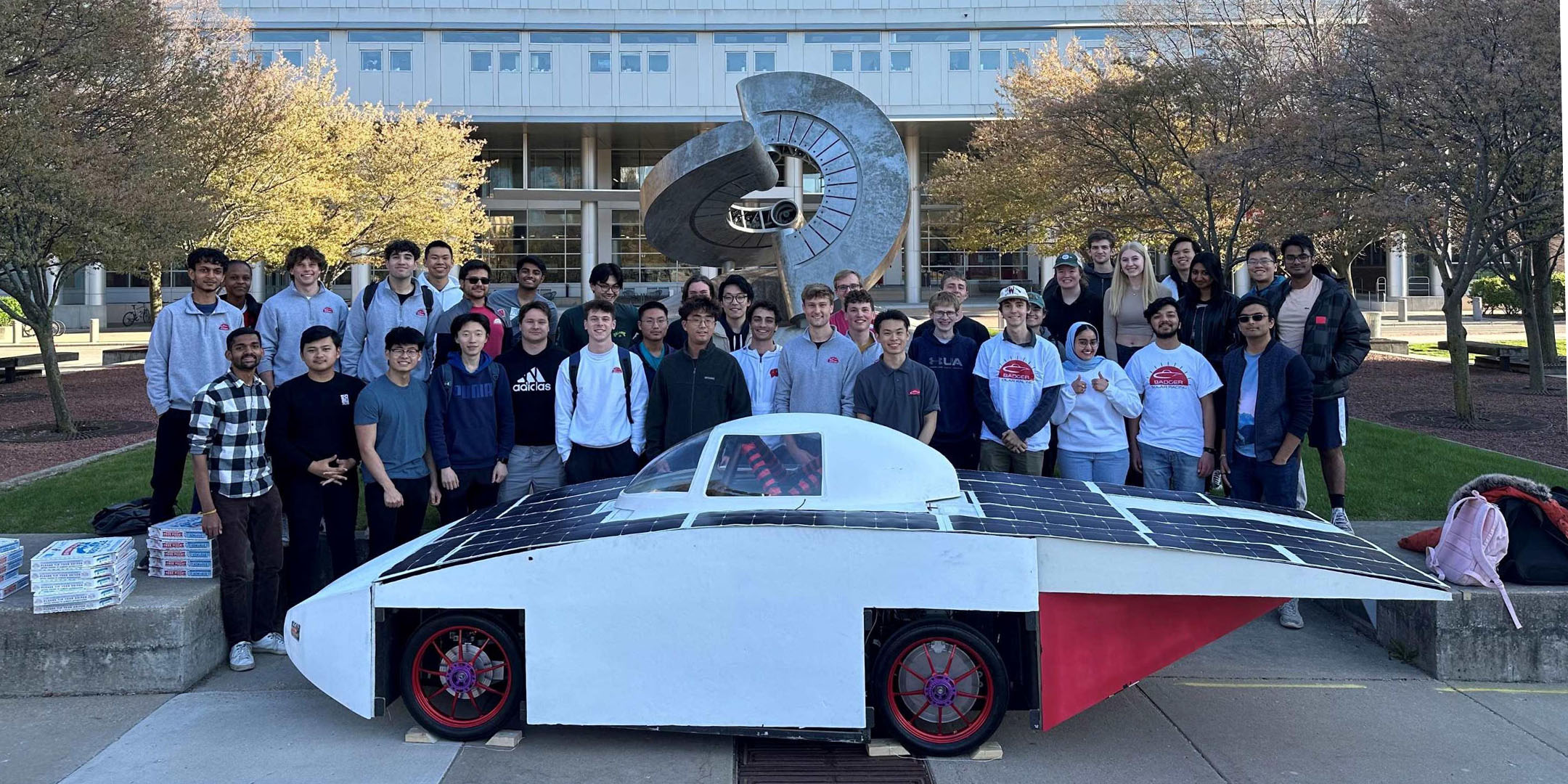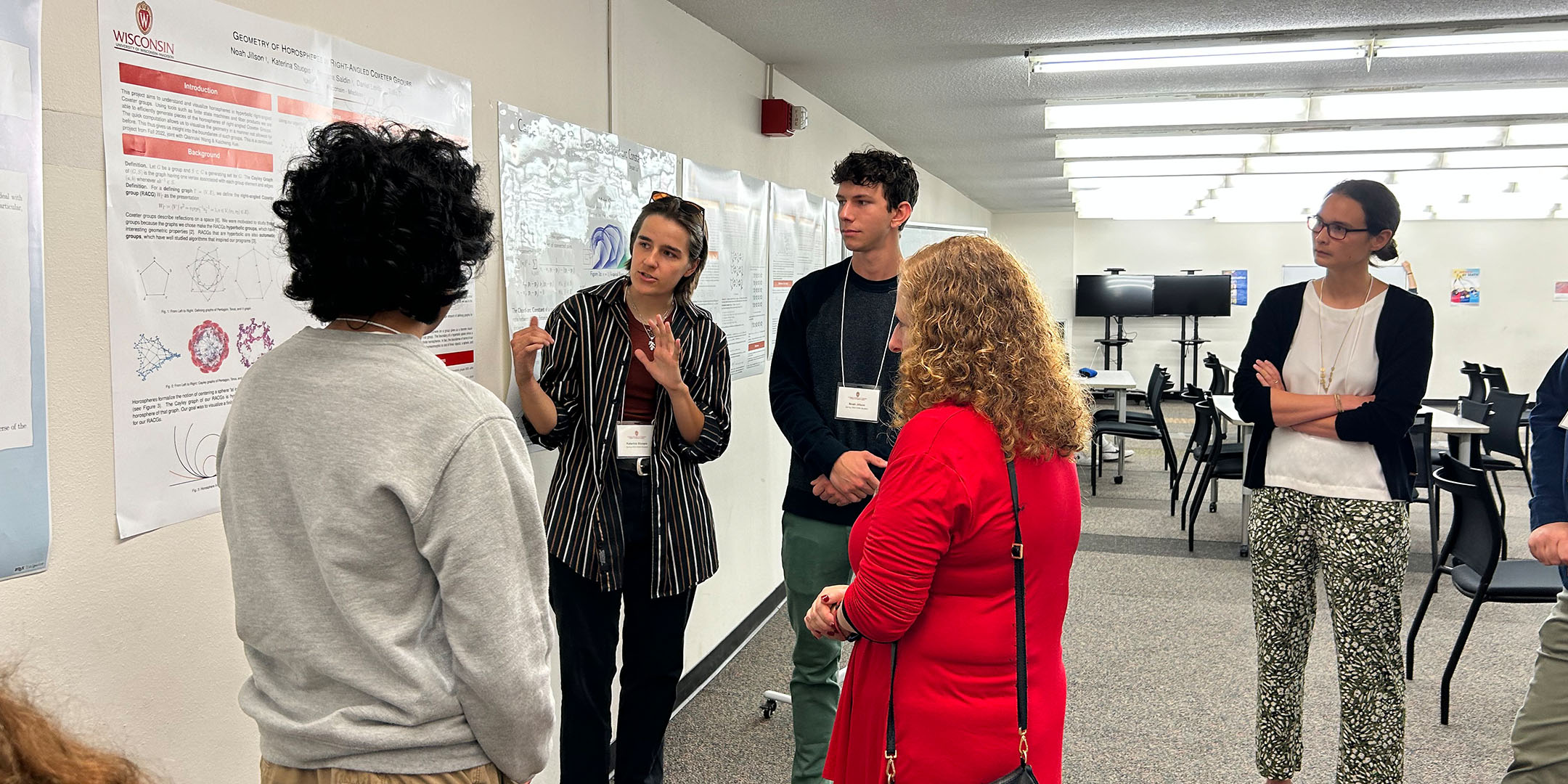
Imagine UW–Madison engineering students collaborating on a solar-powered race car, a mathematics faculty member pioneering an experimental lab to improve undergraduate research, or a human ecology program offering public speaking opportunities beyond the classroom to advance career skills. Discretionary funds make these feats possible, and at the UW, these donations are opening doors to life-changing experiences, fueling student innovation, empowering faculty, and elevating programs beyond the ordinary. This flexible support bridges funding gaps and expands the Badger experience, turning ideas into action across campus.
Math Matters
In 2021, Assistant Professor Caglar Uyanik founded the Madison Experimental Mathematics Lab (MXM) at the UW Department of Mathematics. MXM’s ongoing mission is to aid and improve undergraduate research, provide a robust experience, and encourage community and connection among math majors within the department. Since its inception, 297 students have participated in research through MXM. UW students engage in hands-on investigative experiences, working in small project teams in an active field of mathematics where they learn to present their work and receive course credit for participation.

“MXM is a huge success thanks to flexible donor contributions,” says Uyanik. “[Donor] support financed the initial setup of our collaborative space and computing resources. It also provided a modest stipend ($500 per semester) for graduate student mentors, who are crucial. Discretionary dollars continue to fund the day-to-day activities and large meetings throughout the semester.”
Solar Power Collaboration
A cross-college collaboration at the UW College of Engineering is influencing innovation for undergraduate and graduate students. Badger Solar Racing is a crew committed to creating a solar-powered car for the 1,500-mile American Solar Challenge. They completed Solar Car 1.5 in the summer of 2024, and since then, the team has been working on Solar Car 2 with a goal of participating in the 2026 American Solar Challenge competition.
“This program has given me the chance to experience the holistic engineering process by implementing concepts from coursework into a practical product,” says Alex Nealey x’26, a senior studying engineering mechanics with an emphasis in aerospace engineering. ”Following a project from initial design through analysis, manufacturing, and integration has made me a stronger engineer and helped me identify key areas of interest for my career development.”
Their team includes mechanical, electrical, and operations groups working together to build the most efficient vehicle possible while gaining valuable hands-on experience, learning from mistakes, and striving for ongoing progress.
“Badger Solar Racing gives our students the kind of complex, hands-on, team-based experience that many engineering alumni remember as a defining part of their education,” says Darryl Thelen, John Bollinger Chair of Mechanical Engineering. “We’re grateful to have the resources to support our students as they take on this ambitious challenge and carry forward the proud Badger engineering tradition.”
UW Experience = Real-World Opportunities
The UW School of Human Ecology aspires to provide students with learning opportunities beyond the classroom, where they can be immersed in professional settings and sharpen their career skills. Discretionary support made it possible for human development and family studies (HDFS) students Genna Garrigan ’25 and Emma Powers ’25 to hone their public speaking skills in front of an audience of professors and researchers at the Society for Social Work and Research Conference in Seattle.
“Attending the conference provided me with an enriching experience in academic research and professional networking,” Powers says.
Through annual donor gifts, Quentin Riser, HDFS assistant professor, created the Riser Equitable Early Lifespan Lab (REEL Lab). Under Riser’s guidance, students in his lab assess how family income and government interventions impact children’s cognitive, emotional, social, and physical development across early and later life stages. Riser prefers to work exclusively with undergraduates because of his own transformative experience as an undergraduate researcher. “My mentor provided me with the tools and guidance to develop strong research skills, shaping my academic path.”
Working in the REEL Lab was instrumental in preparing Garrigan for graduate school and her future career. “I strengthened my critical thinking skills, learned how to analyze complex data, and evaluated the broader implications of research findings,” she says. “I also developed strong public speaking and communication skills, which will be essential in the future when presenting at conferences and collaborating in professional settings.”
